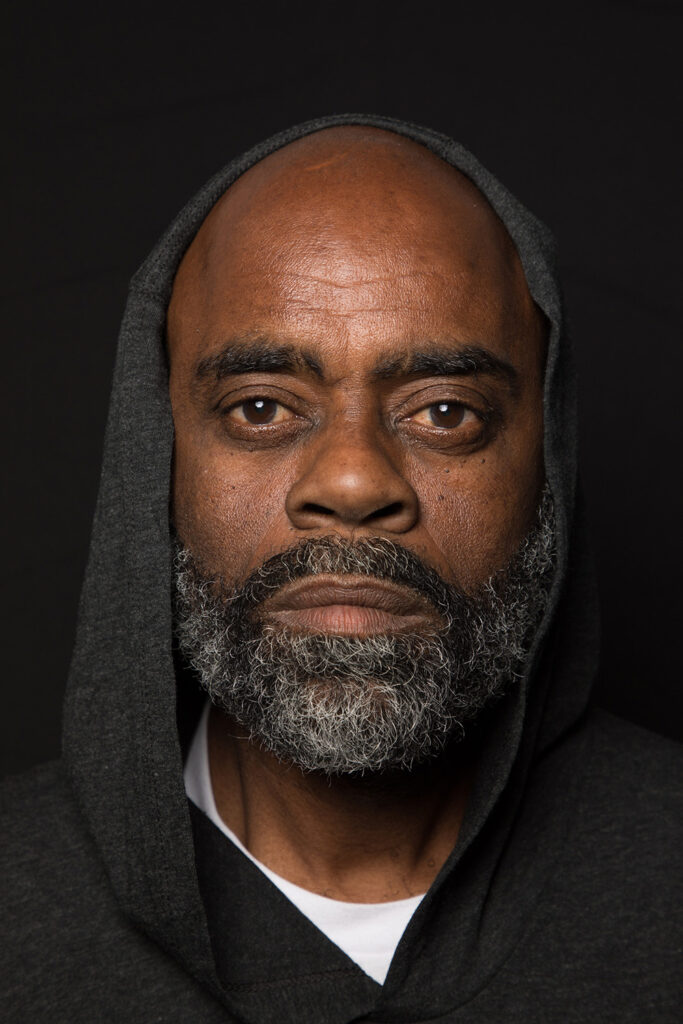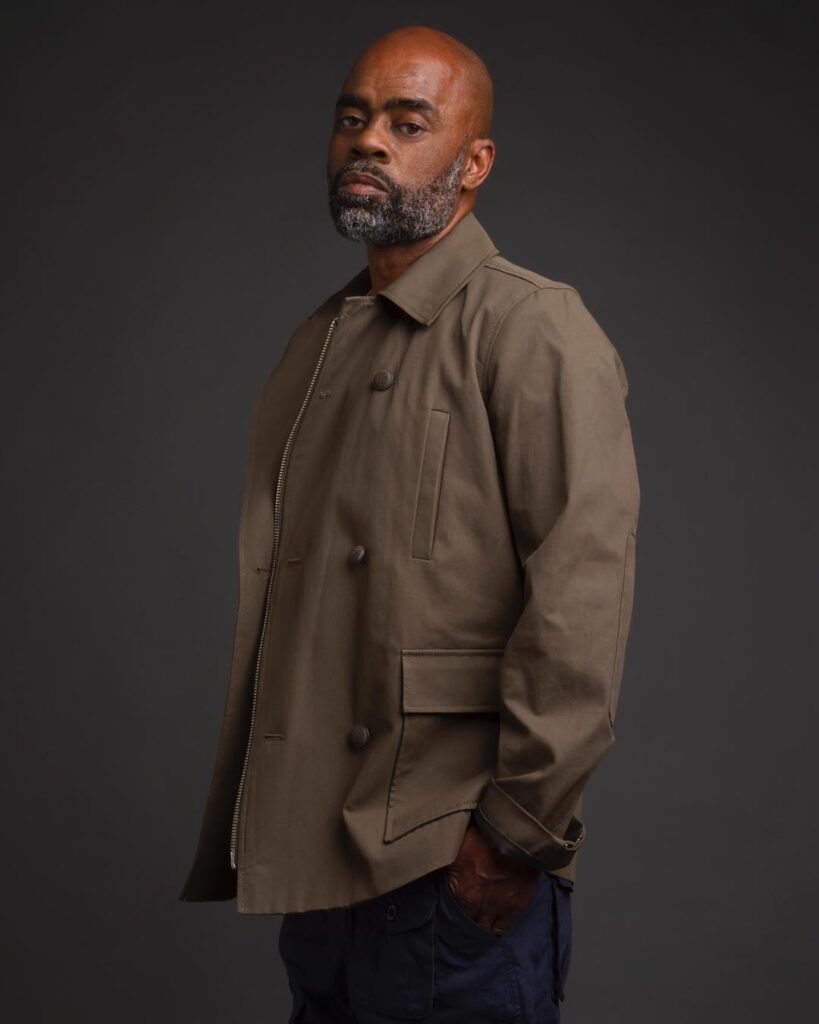A Life Reimagined
“Freeway Rick” Ross has been a lot of things: the biggest crack dealer in America, a tennis prodigy, homeless, an illiterate multi-millionaire, and the inspiration for both the Netflix series “Snowfall,” and the rapper who stole his name.
But, at 63, all that’s behind him.
By Matt Weeks
Not that it was always bad. As the head of a drug operation that supplied crack cocaine to nearly every dealer from California to the New York islands, he was the living embodiment of the 1980s. Not only did he personify the decade’s go-go business mindset, he played a vital role in the era’s biggest political scandal by almost single-handedly providing the CIA with enough untraceable money to fund the Contra rebels in Nicaragua.
Now, the man whose life has been filled with improbable events is, yet again, making big moves. He wants to parlay his fame and experience into a cannabis career. Never mind the market for opening a new dispensary in Los Angeles is filled to the brim. He’s got a secret weapon that guarantees success.
“It’s me. I’m the difference,” he says. “Right now, they got a lot of people in the game that don’t really know what they’re doing, and they gotta be weeded out. Once they’re weeded out, the game is gonna be great. My dispensary is really gonna be for the people. It will benefit the community. It ain’t gonna be where I benefit, and nobody else does.”
That may sound like a typical corporate spin, but it’s Ross’s truth. It comes from a man who was sentenced to life in prison and got released by learning to read and discovering a legal loophole in his case.
If there’s one lesson that history has proven, it’s to never bet against Freeway Rick.
The Anti-Antihero
With a short salt-and-pepper beard, mile-wide smile, and deep-set eyes that catch a star’s worth of light, Ross exudes an avuncular warmth. There’s an energy in his voice that crackles when he talks, making him seem both laid back and passionate. Talking to him, it’s hard to imagine he once commanded a nationwide drug empire.

I don’t really do stuff for the money . . . My motivating factor is to be great, to be a legend."
The most likely reason Hollywood hasn’t made an official “Freeway” movie yet is because Ross doesn’t conform to the stereotype. His low-key personality doesn’t jibe with how our society wants to imagine its outlaws. He’s more Don Cheadle than Idris Elba. He didn’t grow up idolizing drug dealers or dreaming of candy cars; he had a natural talent for tennis and aspired to turn pro. Even his street name, “Freeway Rick,” doesn’t have a badass origin story. He got it as a kid because of where he grew up—near the 110 in Compton.
Even at the height of his success, when he was selling millions of dollars of crack cocaine per day, Ross lived simply. He drove an old truck, wore plain clothes, and didn’t bother with fancy watches. Most of his income went straight into real estate—it was the easiest way to hide his earnings from his mama.
While he’s telling his life’s story, he pauses for a beat, as if he’s trying to zoom out to a bigger philosophy on life. “I don’t really do stuff for the money. Money is not my motivating factor, and it never has been,” he says. “My motivating factor is to be great, to be a legend. I want to be talked about 100 years from now—and not for selling drugs, either.”
For a man who earned more than $300 million net profit from selling drugs, that’s a big ask.
Thirty Miles and a Lifetime
His new cannabis shop—L.A. Kingpins—sits in Sun Valley, a short drive from his childhood home. Physically, the distance between the two is about 30 miles. Emotionally, they couldn’t be further apart.
As a child, Ross never learned to read and write. The system pushed him up through grades via social promotion. He survived socially thanks to an intense personal magnetism and a willingness to do whatever it took to hide his perceived shortcoming.
“Any time they tried to call me up to the board, I would do something silly. I’d tell a joke about somebody or talk about somebody’s mama. Then, I’d go to the principal’s office and get a couple of swats,” he said. “For me, that was a good thing. All the kids would think I was cool ‘cause I would be against the teacher. They liked me because I made everybody laugh. But it was about survival. I didn’t want nobody to know I was a dummy.”

I know that my education is past a master’s degree - and I know what they don’t teach you in Harvard Law School.
It wasn’t until he was 28, when he was facing a life in prison, that Ross truly began his education. Realizing that nobody would be as serious about his case as he was, he set his mind to action. That’s when he sat down on a government-issued cot and began to learn his ABCs.
“The first thing that I ever wanted to read was my indictment,” he explains. “I never wanted to read before. When I was coming up, I thought ‘What I’m gonna do with reading?’ I never saw myself as being somebody that reading would benefit, if that makes sense. I always thought I would be, you know, digging a hole. I never saw myself doing no real estate or anything like that.”
Once he started reading, Ross didn’t stop. He blazed through his legal documents, then a library full of law books, searching for anything to get him out of his cell.
It was through his research in the prison law library that he spotted an irregularity in his case.
Ross was sentenced to life in prison under California’s “three strikes” law, which mandates harsh penalties for multiple convictions. Since he had already faced jail twice, his fate was sealed. It was his third strike—he was out.
But after poring through the California Code, Ross realized his prior convictions stemmed from the same incident, which meant they should have counted as a single strike. The realization struck him like a punch. He double-checked it, then he triple-checked it, then he called up his lawyer, who … promptly laughed him off the phone.
Undaunted, he petitioned the court for a new attorney. Together, they succeeded in persuading a judge to reduce Ross’s sentence from life to 20 years.
He was out in just 14.
The School of Hard Rocks
Ross left prison after devouring more than 300 books, ready to put his new knowledge to the test. He dreamed of opening his own business and transforming his neighborhood again—but this time, he would be a force for good.
“I’d read all those books in prison. I read Napoleon Hill 25 times. I read ‘The Richest Man in Babylon’ 25 times. I read ‘How to Win Friends and Influence People’ three or four times. I read ‘The Millionaire Next Door,’ ‘Who Moved My Cheese?, ‘From Good to Great.’ I know that my education is past a master’s degree,” he said. “And I know what they don’t teach you in Harvard Law School.”
But when he strolled out of his cell, he walked straight into homelessness. His connections from his dealing days had dried up. He struggled to secure seed money for his business. Nobody wanted to hire a two-strike felon with a high school education and a notorious name. He went from driving an old car to sleeping in one.
But part of his prison education was patience. He’d just waited 14 years. He could wait a little longer.
He’d been betrayed by a friend, set up by his government, abandoned by his legal counsel. While he was in jail, someone else started using his name to get rich. Whatever trouble Ross had caused, he’d paid for it in full. He never questioned that he’d be back. It was his due.
What he couldn’t imagine was what that redemption arc would look like.












